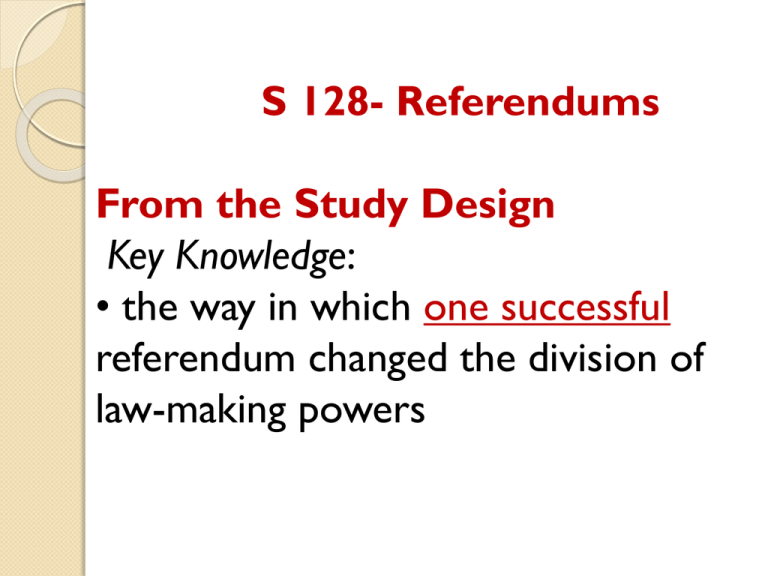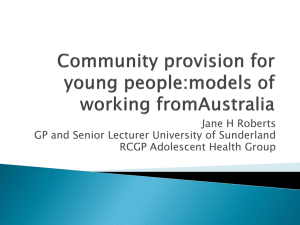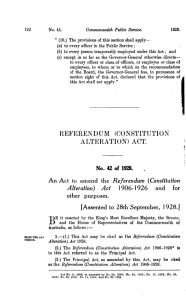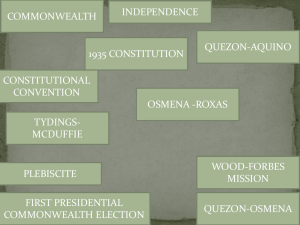5. the 1967 referendum
advertisement

S 128- Referendums From the Study Design Key Knowledge: • the way in which one successful referendum changed the division of law-making powers Prior to 1967 all Indigenous issues had been left with the states because they were deemed to have more specialised knowledge on issues regarding Indigenous people. The constitution specifically denied the Commonwealth the power to legislate for Indigenous people or to include them in national censuses. Many regarded this provision as unjust for Indigenous people. What the 1967 referendum was about? The 1967 Referendum proposed: to include Aboriginal people in the census. to allow the Federal government to make laws for Aboriginal people. The proposal was carried. 90.8% of voters voted in favour 6/6 states voted in favour Interesting facts: Victoria 94.68% of voters voted in favour Western Australia as a percentage of the population recorded the largest NO vote 19.05% This referendum successfully amended the constitution to allow the Commonwealth Parliament to legislate in an area that was previously a residual power. The Commonwealth Government could now become more involved in dealing with the needs of indigenous people and implement major reforms. One example of the reform they implemented was: Passing of the Native Title Act in 1993 As a result of the success of this referendum, the Commonwealth Parliament’s law making powers were expanded as they could now legislate in areas that were previously state’s powers. Prior to the referendum this section of the constitution read: The Parliament shall… have power to make laws…with respect to: S51(xxvi) The people of any race, other than the Aboriginal race in any State, for whom it is deemed necessary to make special laws S 127 Aborigines not to be counted in reckoning population. In reckoning the numbers of people of the Commonwealth, or of a state or other part of the Commonwealth, aboriginal natives shall not be counted. After the referendum sections of the Constitutions were crossed out permanently: S51(xxvi) The people of any race, other than the Aboriginal race in any State, for whom it is deemed necessary to make special laws S 127 Aborigines not to be counted in reckoning population. In reckoning the numbers of people of the Commonwealth, or of a state or other part of the Commonwealth, aboriginal natives shall not be counted. After the referendum 1967 referendum the Commonwealth could now make laws for Indigenous people. The responsibility for Aboriginal affairs was now a concurrent power allowing the Commonwealth to be involved in an area which had been the states responsibility. Also Indigenous people could now be included in national censuses. Impact of this referendum on the division of power. The impact of this referendum on the division of power between the states and Commonwealth parliaments was, that the Commonwealth could now legislate in an area which was previously a residual power. This shifted law making powers from the state to the commonwealth. Under s 109 in areas of concurrent powers, the commonwealth law will prevail. What the 1967 Referendum was not about. The 1967 Referendum did not give Indigenous people the right to vote. This right was already introduced in 1962. did not grant them citizenship. By the time of the referendum. They officially attained citizenship rights in 1948. HOMEWORK – ‘How did the 1967 referendum give greater power to the Commonwealth Parliament?’ In your answer explain: • what was proposed to the people • whether it was successful • provide statistical evidence in your answer • explain how the power was altered for both the state and Commonwealth Parliaments






